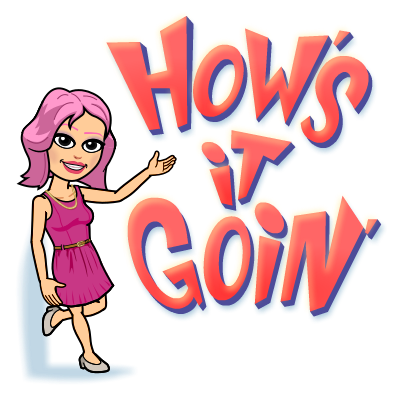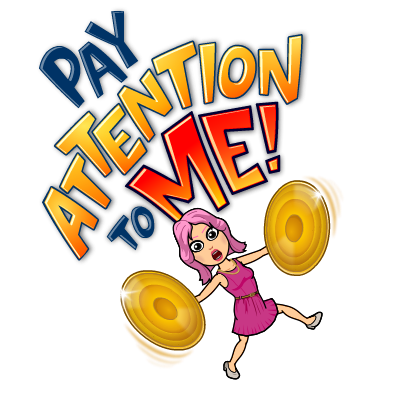Dear Readers, Writers, and Precious Patrons,
Today on All Authors Blog, we're pleased to bring you another installment of Para-Con with Rose & Carol.
In part 3 of the series, C. Desert Rose and Carol Cassada discuss the importance of dialogue and the character's backstory.

Hello everyone and welcome to Part 3 of Para-Con with Rose & Carol. Today our focus will be dialogue and backstory.
Two every basic elements, yet you would be surprised to know that it isn’t something some writers even think about. Yet, it plays an enormous role in the world of proper storytelling.
Without the correct dialogue and backstory a story can easily fall through the crack.
Before I keep going, I’ll allow my buddy Carol Cassada to say hello.
Hello everyone.
I hope you’ve enjoyed Para-Con with Rose & Carol.
We’ve touched on a lot of stuff, everything from heroes to heroines to settings. Now, we’re delving into the nitty gritty of the story.
We’ve got a lot to discuss, so Rose I’m ready whenever you are.
Dialogue
Once, not too long ago—about a year or so—I picked up a book that claimed to be historical, yet in the dialogue and backstory one wouldn’t have realized. Had it not been for the blurb, I wouldn’t have automatically understood that this story was supposed to have been based on WWI.
When I started reading the story I was expecting the characters to speak with the term and slang that they would’ve back in that time. Something like, “My chum and I went to see that blighty down the street, ‘cause he was knockin’ around my other buddy. We wiped the floor with him like a strip of bumf paper for my bum.”
Translated into modern verbiage this would mean, “My friend and I gave this foreigner near by a visit because he beat up a friend of ours. We pummeled him to the ground, wiping the floor with him as if he were a strip of toilet paper on our butts.”
SIDE NOTE: I apologize in advance for the violence of the above, but it was the best example I could give.
Back to what I was saying … so instead of the characters in the story speaking more like the former, they actually spoke more like the latter. It just didn’t seem realistic to me. I’m a firm believer that a story MUST have all of the elements that signify the time that they are representing. Most of this happens in the dialogue.
A great example of this is my Fate’s Endeavor Collection.
I use angels and demons as the primary element in the collection. It is a common belief that these deities are as old as time itself. If that’s the case, then they WOULDN’T sound anything like you and I.
Some time ago a fellow author did a character interview on Gabriel, the villain of If Death Should Love Me. That character interview was the perfect means of demonstrating how both dialogue and backstory work together. You can see it here:
If angels and demons are as old as time itself, wouldn’t they speak in a very cryptic way. Also, I would assume that they would be blatantly honest, as they have nothing to lose otherwise. They’d be powerful, even in their speech pattern and tones. They’d be majestic, showing that through their words. They would be transcendent and it would be their language.
So, implementing these key elements in the way the characters communicate is imperative to making the story realistic.
How about for you, Carol?
Rose, I’m laughing so hard at your toilet paper example.
But I agree with you about how the dialogue should reflect the time and characters of the story.
With my stories, everything takes place in the present. So it’s important the dialogue reflect the time.
For instance, I like to spruce it up having characters mention current trends or use slang terms such as chillax and yolo.
While these words are a good representation of the time, you’ve got to be careful with which character uses them. Younger characters like Westmore’s Alicia and Scott can get by with using this language. Yet, you wouldn’t find a rich snob like Andrew Braxton using these slang terms.
Backstory
A powerful character is nothing, if he/she does not have a believable backstory. Backstory can be told in many ways; through flashbacks, through narrative, through character conversations. Just about anything in a book can establish a good backstory. The most important thing an author can use to give the character viability and substance is to give him/her a probably backstory.

What is backstory?
back·sto·ry
ˈbakˌstôrē/
noun
noun: backstory; plural noun: backstories; noun: back-story; plural noun: back-stories
- a history or background created for a fictional character in a motion picture or television program.
- similar background information about a real person or thing that promotes fuller understanding of it.
When creating a viable backstory to a paranormal character it is important to consider some things.
- WHAT TYPE of mythical character are you writing about?
- How old is the character?
- What does history dictate about the time/age in which this character was ‘born’. Using the word born loosely, of course.
- How can true past events be applied to this character’s history to make his/her life more plausible?
- What is the most practical way of narrating his/her history in the story?
Once you’ve figured all of these things out then you have the right tools to put together a believable paranormal backstory.
Trust me when I tell you that backstory is one of THE, IF NOT THE, most important elements in executing a good and credible fictional story.
A great example is the history of Zita and Roman from Demoness Enchanted. You see, they are both still very young, but it was their parents who gave Zita and Roman the necessary substance and backstory that they needed in order to reach their prime potential and make the story more profound. Everyone knows that family drama is the best method of establishing a feasible means of current conflict. It was through Zita and Roman’s parents the their current hardships were founded.
Backstory at its best. :D LOL
Carol, how about for you?
Rose, you hit the nail on the head about the backstory being an important element.
The backstory not only gives you a glimpse into the character, but it also sets the stage for the story.
With the Westmore series, it was hard because I had twenty characters to write backstories for.
Even though I had my work cut out for me with the Westmore characters, it was also fun to write. I have a variety of characters, everyone from the CEO to the rockstar to the bar owner. Each character in the series has their own individual storyline, so it was great creating their backstory to explain how they reached this point in their lives.
A good example is Andrew Braxton, who’s sort of the villain of Westmore. He’s a very domineering businessman, who resorts to devious tactics to get what he wants. Through Andrew’s backstory, you learn about his childhood and how it shaped him into the man that he is. What he went through in the past plays a huge role in the drama with own children, which is one of the main focal points of the series.
Well, I’ve said everything that I needed to say on this. Carol, would you like to sign us off?
Rose, it’s been a pleasure working with you. ☺ I hope we get the chance to do it again.
Everyone, thank you for tuning into Para-Con with Rose and Carol. We hope you’ve enjoyed reading the articles as much fun as we had writing them.
Until next time, this is Carol and Rose signing off. ☺

Toodles!
~Rosie & Carol







No comments:
Post a Comment